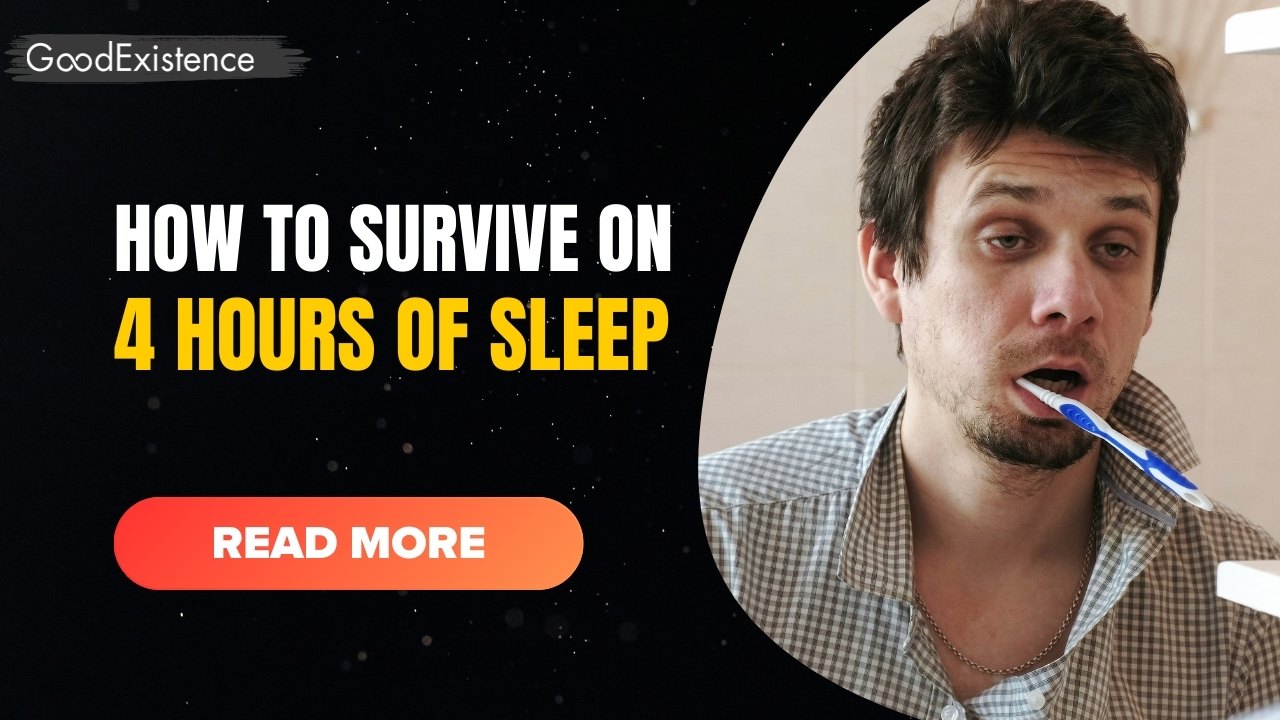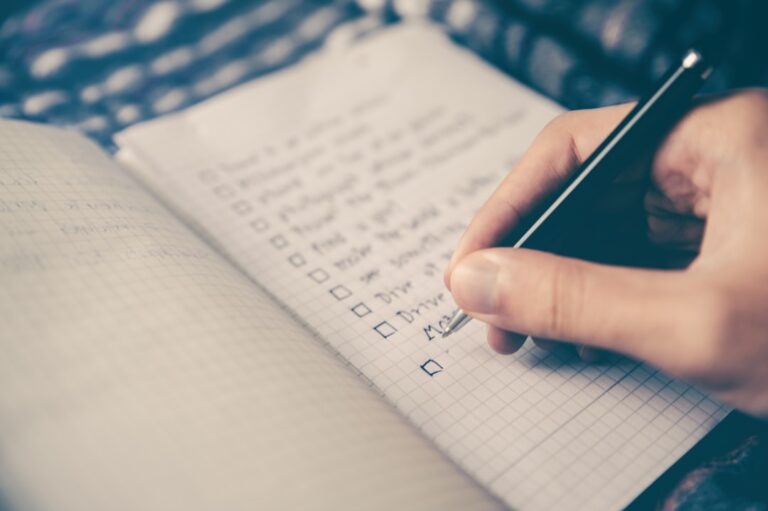
Oh no, you hit snooze one too many times! Now you’re staring down a brutal 4-hour sleep situation before the day even starts. Been there, done that. But fear not, friend!
This article is your personal survival guide to conquering the day on minimal sleep. We’ll explore practical tips to stay awake, focused, and feeling (somewhat) human – even with a sleep deficit.
I know the feeling, you stay up until late in the morning, and then you realize you have to be up in just a few hours. With a shaking hand, you take out the phone and open the alarm app and set it to 4-5 hours later.
The sudden realization comes in that you’re absolutely messed up, but now there’s no turning back. You even wonder if it’s better to stay up all night at this point (hint: it’s not).
But okay, sometimes the scenario isn’t that bleak, most of the time, life happens, either your kids kept you up all night, or you had to study for an exam, had a night out, enjoyed a long night session of gaming… whatever the reason, you’ve stayed up well beyond your regular schedule and now you have to survive on just 4 hours of sleep.
Can you do it? Yes, is it advisable to do this all the time? No, of course not, but again, these things happen, and while we should try to maintain this hectic sleep schedule to a minimum to not mess up our health, sometimes it’s impossible to avoid it.
Here are some of my tested tips on how to stay awake on 4 hours of sleep and still function at work, school, or whatever else you had planned for the day:
1. Stay Hydrated
The first thing, is to stay hydrated, and I don’t mean coffee… (we’ll come back to that later), no, I mean water, and perhaps some vitamins to keep you fresh longer.
When you hydrate yourself properly your body functions at its best, and keeps you feeling alert and energized.
Dehydration can lead to headaches, fatigue, and difficulty concentrating – all things you definitely don’t want when you’re running on fumes.
Aim for a big glass of water first thing in the morning, and keep a reusable water bottle with you throughout the day to sip on regularly.
Adding some lemon slices or cucumber chunks can make plain water more exciting.
2. Light Exercise Session
A light exercise session can surely boost your day and make you avoid feeling tired. You can choose to do 30-60 minutes of cardio early in the morning, or as I like to do it: in the middle of the day, to break up the day (after a bad night of sleep), and then feel energized to continue the rest of the day.
Don’t go heavy on the weights if you’re into weightlifting either, choose more reps with less weight, warm up well before any complex exercise (squats, deadlift, bench), etc.
Ideally, you should keep weights to a minimum and just do cardio, core exercises, and stretching. It’s what I do when I feel tired or even on my rest days.
3. Gotta Have Some Coffee
Coffee can be great, especially if you love it, and enjoy drinking it, but too much of it can mess up with your sleep also, it’s probably what made you stay up late to begin with. But it’s also beneficial, especially in the days when you have to get by on 4 or 5 hours of sleep.
I recommend you try to avoid having coffee right away after waking up because your cortisol levels are already at a high, maybe try to drink your first cup of coffee 1 or 2 hours later after waking up.
And then another cup later in the day but not later than 2-3 PM to not interfere with your sleeping schedule. I break this rule many times and end up drinking it even at 6 PM (massive NO NO), and then I stay up till 3-4 AM. But as of late, my caffeine intolerance is starting to creep up on me and it doesn’t have the same potent effect anymore.
Bonus hack: Drink coffee, and take a nap immediately after it. A short nap of 20-30 minutes gives you a little more boost later in the day, and when you wake up, the coffee will also start taking effect, and so this creates the perfect combination to maximize alertness.
I don’t do this often, but I’ve read about it, and apparently it works for many people.
4. Don’t forget to eat
Sure, don’t go crazy with t-bone steaks and stuff, you should keep your food light as well, and maybe avoid carbs that make you drowsy and sleepy also (pasta, bread, sugary stuff). Go for lean protein (chicken, fish, turkey), eat eggs, salads, and feta cheese. Nuts, seeds, and fruits (easy with the sugary fruits though).
I don’t know the reason and probably there’s a study out there, but I’m hungry almost all day, when I haven’t had a good night of sleep, it seems the body is trying to compensate by needing more nutrition. But that’s just me probably.
So nutrition is important, but try to keep it healthy as well, even though I know this is a bit hard to achieve these days.
5. Get Some Sunlight
Sunlight directly affects your circadian rhythm as well as the vitamin D production in your body. Vitamin D is shown to help improve fatigue and feelings of tiredness. So prioritizing some time to get some sunlight especially early in the morning is important if you want to have a productive day.
No sunlight? No worries, you can fake (kinda) it with a light therapy lamp.
If you have access to a light therapy lamp, it can be a helpful tool. Using it for 20-30 minutes in the morning can help regulate your circadian rhythm and improve alertness.
It basically mimics natural sunlight, which can be especially beneficial during the winter months or on gloomy days.
6. No Screens During the Night
Since I just wrote about the importance of sunlight and how it affects your circadian rhythm, it’s only natural to also talk about not using any digital screens before your ideal bedtime.
This might seem like a no-brainer, but it’s worth mentioning. Avoid screens for at least an hour before bed, even if you’re not tired. I’m guilty of this, so I can’t even give you this tip thoroughly because I don’t follow it almost ever, but then again it probably explains why I also have a sleeping pattern problem for 15+ years now. Oh well… moving on.
The blue light emitted by electronic devices like phones, laptops, and TVs can interfere with sleep quality.
Related: Check out my Digital Detox Guide
Instead, you should try reading a book, spend some time with your family, or play games with them (monopoly stuff not digital ones on your PC), taking a bath, go do some swimming, do some stretches, etc.
Ideally, if you’re a Christian, you should pray, some of you reading this might not be, but if you are religious, praying has many benefits, especially at night. But perhaps one added bonus is that it allows you to turn down your phone screen for a while. Try it, I know it’s not popular, but maybe it helps you.
7. Manage Your Stress Levels
Easier said than done, I know! But stress can exacerbate feelings of fatigue. If you’re feeling overwhelmed, try incorporating relaxation techniques like deep breathing or meditation into your routine.
Taking a few minutes each day to quiet your mind can make a big difference in your sleep quality, and hopefully lead to a more restful night.
You will probably also not be able to do your best work when sleep-deprived, so maybe try avoiding big decision tasks in that day (if possible).
In the end…
Having to get by on 4 hours of sleep (or less) isn’t ideal, and it shouldn’t become the norm. You need quality sleep to let your body regenerate itself and to give you more boost the next day. If you also exercise a lot and go heavy in the gym, then this is a no-brainer, rest is more important than what you do in the gym and what you eat.
But like I’ve said, we’re all going to have days with minimal sleep, and can’t really avoid them, so when that happens, these tips will help you survive the day and minimize the impact of sleep deprivation, hopefully.
Have you ever had to function on minimal sleep? What was your experience like? Do you have any other tips that help you and I haven’t included? Let me know below!





